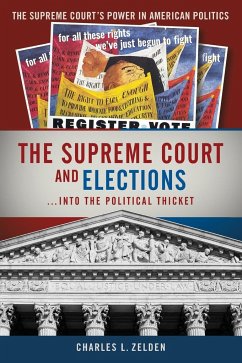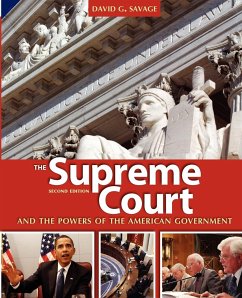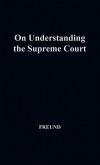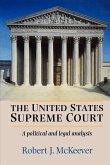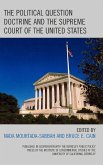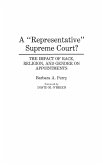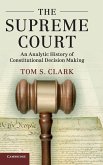Voting is simple in the United States, right? The process of voting (organizing, running and tabulating the results of a popular election) is, in fact, a highly contested act whose forms, meanings, and practical boundaries are open to widely differing interpretations. From questions of who can vote to the tricky problem of accurately counting the votes, popular democracy is still a work in progress in the United States. Add in the complexities of politics and the picture becomes even more complicated. Taking a chronological approach to the topic, The Supreme Court and Elections explores the ways that the Court has struggled with these questions. From the earliest days of the Union when the Supreme Court refused to address the topic, to the early struggles with the Fourteenth Amendment's impact on the question of who can vote, to the rise and fall of race-based disenfranchisement, to our recent issues of proper districting, campaign finance reform and the struggle to find a workable voting technology, the essay and documents in this reference illuminate the multifaceted nature of voting and election laws. At the same time, this title provides in-depth analysis of the impact of the Court in shaping this ongoing history. Topics addressed in The Supreme Court and Elections include the following: The Nature of Election Law/Voting Rights and the Impact of the Court Impact of the Civil Rights Amendments Voting in the late 19th And early 20th centuries Disenfranchisement and the Court Redistricting cases Majority-Minority districts Campaign finance reform Bush v. Gore and beyond This title also interweaves select sections of primary source documents in an easy-to-follow format: The U.S. Constitution The Voting Rights Act (1965) and the later Amendment (1982) Excerpts from Federal Voting Statutes Supreme Court cases President Lyndon Baines Johnson excerpts Contemporaneous news articles Court Briefs Focusing on the practical problems of U.S. voting and its complex development within the framework of the political branches of the government, students and researchers will benefit from the clear picture painted by the author of the current elective structure. Essay and document based, The Supreme Court and Elections is the definitive reference on the application of U.S. law on Americans right to vote and the resulting participatory democracy.
Hinweis: Dieser Artikel kann nur an eine deutsche Lieferadresse ausgeliefert werden.
Hinweis: Dieser Artikel kann nur an eine deutsche Lieferadresse ausgeliefert werden.

